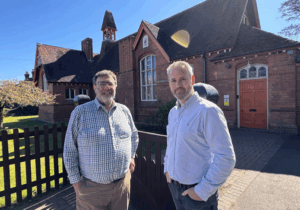Chancellor of the Exchequer Rachel Reeves licensed to thrill
Why becoming an accidental landlord is so much more than red-tape
The embattled Chancellor of the Exchequer whose frequent leaks to the media about possible SDLT changes, Mansion tax initiatives and tax on uplifts on property equity at point of sale, now finds herself ‘bunny in the headlights’ for not getting a licence to rent her home out.
This means her tenant could receive £41,000 of rent, that Reeves could get a £30,000 fine and a civil or even criminal conviction. Plus of course she has a residential mortgage on her Dulwich home – so did she inform the lender. If not the lender could withdraw the mortgage and she would need to get a commercial landlord mortgage at higher cost. Also some lenders charge a higher rate of interest if a house is rented out, having formally been a residential home.
Why all of this matters is that the UK economy is worth about £2.7 Trn annually and the fiscal events – budgets given by the Chancellor have a great impact on the that economy, they stimulate growth or stagnation. Given the importance of getting the budget right – I think it is time to re-think if Rachel who lied on her CV is actually up to the job of steering UK Plc out of the economic turbulence it presently finds itself in.

Reeves become an accidental landlord because her life changed, a move to 11 Downing street. This brought with it a new set of rules and regulations that needed to be complied with, failure to do so will have both financial and probably political repercussions. But for even those not in the cabinet, it is clear that there is a real push for the Private Rental Sector (PRS) to only have institutional landlords to ensure things are done properly, (irony) as the minefield of regulations – recently bolstered by the new Act which has pushed even more power to the tenant, means that there are now beartraps aplenty for the armature landlord.
And on that theme, given the amount of kites that have been flown by the treasury team, and the lateness of our next budget the 26th of November, maybe what the government and the nation needs is not an amateur Chancellor bereft of fiscal strategy. Looking as the ex-governor of the Bank of England recently commented to solve things with weak policy worked out on the back of a ‘fag packet’.
Maybe Rachel has one merit, if there is only to be one budget a year, instead of the usual two, by Autumn 2026 it is likely that she and the present PM might well not be in the cabinet, her fall from grace being that she lied to the PM over this present rental licencing debacle, and Starmer’s fall being due to his trouncing in the May 2026 local elections.

Andrew Stanton CEO Proptech-PR
OpticWise ‘How to compete in a world where data and systems drive everything’
Week 24: How to Become a Digital-First Owner (And Why It Pays)
In this weekly series, we explore how the commercial real estate industry is being transformed by data and digital infrastructure. Guided by the principles in Peak Property Performance, we unpack a new idea every week to help owners unlock value, reduce risk, and future-proof their portfolios. Learn more about OpticWise and Bill Douglas, the authors of this series.
The term “digital-first” gets thrown around a lot—but in commercial real estate, it’s more than a buzzword.
It’s a strategic posture. A way of thinking. A readiness to compete in a world where data and systems drive everything from underwriting to tenant experience.
And it’s no longer optional.
What Is a Digital-First Owner?
Being digital-first doesn’t mean becoming a tech company. It means using digital and data infrastructure (DDI) to enhance core CRE priorities: asset performance, NOI, tenant satisfaction, and risk management.
A digital-first owner:
- Sees data as a core asset—not a byproduct
- Demands infrastructure control—not vendor dependency
- Designs buildings with digital pathways first—not last
- Embeds technology decisions into capex, leasing, and operations
- Leads with intelligence—not guesswork
Most importantly, a digital-first owner makes DDI a strategic priority, not an afterthought.

Andrew Stanton CEO Proptech-PR
Enrolment to master Historic Building Conservation with technology now open
BEST Training, BE Conservation and Carpenter Surveyors launch new heritage course
BEST Training, in collaboration with leading conservation specialists BE Conservation and Carpenter Surveyors, have announced the launch of a pivotal new online course, Master Building Conservation with Confidence and Technology – Module 1.
Developed by renowned industry figures Stephen Boniface and Ian Bullock, the programme is engineered to provide professionals with the essential credentials and practical skills to excel in the heritage sector.
Drawing on decades of combined, industry-leading experience, this comprehensive course addresses a critical need for specialist knowledge in the surveying and conservation of historic properties. It is designed to equip professionals to confidently navigate the unique challenges presented by older structures, from the intricacies of timber-framed buildings and historic brickwork to diagnosing structural movement and damp.
The course uniquely blends timeless conservation principles with the latest in modern surveying and report-writing technology, empowering participants to lead successful, technologically advanced building conservation projects.
“We want to transform how professionals see their role. This isn’t just about identifying defects; it’s about becoming a custodian of a building’s legacy,” said Stephen Boniface, co-creator of the course and a leading voice in building conservation. “Our goal is to give surveyors and architects the deep-seated confidence to not only diagnose issues but to understand the story of a structure and make decisions that will preserve it for generations. This course provides that foundational knowledge, blending decades of experience with the practical tools needed in the field today.”

Module 1 provides an in-depth introduction focusing on the historic building surveying process, which together with later modules will provide end-to-end mastery of building and heritage conservation. The curriculum guides participants through everything from initial research, legal aspects, and conservation principles to on-site data capture, diagnosis, and final client debrief. The virtual course comprises over 10 hours of video content, contributing to a total of 14 hours of Continuing Professional Development (CPD).
This training is essential for a wide range of professionals, including Surveyors, Architects, Engineers, Architectural Technicians, Archaeologists, Conservation Officers, and Property Managers.
Ian Bullock, a Chartered Surveyor and co-developer of the course, commented, “Professionals in this field need unshakeable confidence. They need to walk onto a heritage site and read the building’s history, its strengths, and its vulnerabilities.
This course replaces guesswork with foundational principles and empowers them with the tools to deliver exceptional, modern reports. It’s about becoming the go-to expert that clients and colleagues trust for their most prestigious and challenging properties.”

Andrew Stanton CEO Proptech-PR
Andrew Stanton Founder & Editor of 'PROPTECH-X' where his insights, connections, analysis and commentary on proptech and real estate are based on writing 1.3M words annually. Plus meeting 1,000 Proptech founders, critiquing 400 decks and having had 130 clients as CEO of 'PROPTECH-PR', a consultancy for Proptech founders seeking growth and exit strategies. He also acts as an advisory for major global real estate companies on sales, acquisitions, market positioning & operations. With 200K followers & readers, he is the 'Proptech Realestate Influencer.'












